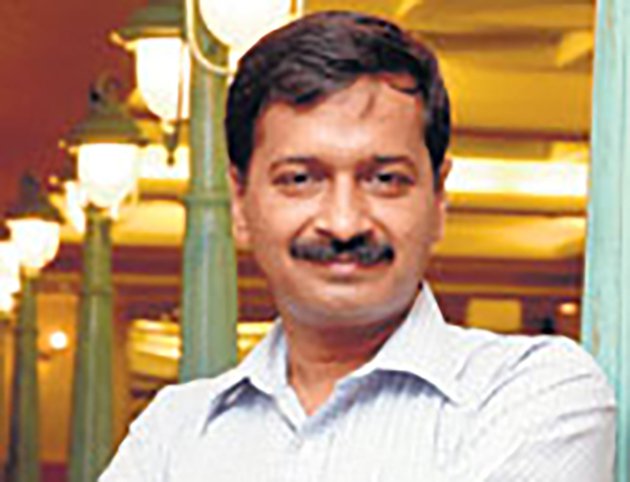Fighting the Odds

That was definitely an understatement. Kejriwal, 38, has metamorphosed from income tax officer to tireless campaigner for citizens’ rights. His efforts have won him the 2006 Ramon Magsaysay Award for Emergent Leadership.
Perhaps it’s not surprising that Kejriwal, an ex-income tax officer, has turned the government’s own weapons against it. He was one of the first to realise the full potential of the Right To Information Act (RTI), which allows citizens access to government files.
So, he has used the RTI to expose the public works — or lack of them — in a Delhi slum district. And he has battled on behalf of jhuggi dwellers, making it possible for them to claim land that had been allotted to them.
Says Kejriwal, “Anyone could’ve done what I did in the income tax department but here, I think I’m more needed.”
What makes Kejriwal tick' He has always wanted to make the world around him a better place. Even as a child he wanted to be a doctor because, “I thought doctors could do so much for the society”. Kejriwal’s father was an engineer and he spent most of his childhood living in small northern Indian towns like Sonepat, Mathura and Hissar.
In the 10th standard, a friend suggested that he should aim to study in an elite institution and that there were more engineering seats than medical ones. So, he switched direction and turned his attention to getting into the IITs. “Looking back today, I think that was not a logical judgment,” he says.
His childhood dreams of helping society also vanished during his time at IIT Kharagpur. Instead, he spent lots of time at dramatics and debating. After completing his mechanical engineering, he joined Tata Steel in Jamshedpur.
In those days, most students thought it was smart to do the civil service examinations, and Kejriwal went along with the herd. “After IIT, it was considered the done thing to join management, go abroad or join the civil services. I joined the civil services,” he says.
Kejriwal got through at his first attempt. During his training in Mussoorie, he fell in love with batchmate Sunita, and they later married.
“Our first posting was together in Delhi,” says Kejriwal who was appalled by the corruption that he saw all around him.
Often, he recounts that chartered accountants would casually ask if they could, “do something for me”. Kejriwal would politely show them the door. By the third month, his reputation was established and the offers stopped coming.
But Kejriwal wasn’t fully satisfied with his job and the way the department worked. He was disturbed by the fact that ordinary people often had to pay bribes to get work done. “Corruption is so bad that you can’t even blame them,” he says. Nevertheless, he admits that it was also satisfying to unearth tax evasion.
His wife Sunita was nervous when he insisted on resigning from the service. “There was a lot of tension,” he says. But Kejriwal says he knew what he was doing. “While I enjoyed my job, I craved something more.”
One day in 1999, over tea at his home in Ghaziabad, he and four friends decided to form Parivartan, which means “change”. They wanted the organisation to be a platform that would help to bring about change in society. But they wanted it to be run differently from other NGOs. Even after seven years, Parivartan doesnÂ’t have an office. Its members work from home and deal with different cases that require their intervention.
In fact, it’s not even registered as an NGO. “We don’t feel the need as we’re not looking for funding,” says Kejriwal. But there are private donors who keep the organisation running.
Parivartan started with the “Don’t Pay Bribes” campaign and its first target was the income tax department. “My friends would appeal to people outside the office not to pay bribes and to get their work done free of cost by me,” he says. The group started collecting grievances from the public and would present them to the commissioner in charge of the office.
Initially, Kejriwal’s boss was quite enthusiastic about the campaign. But, as time went on, he began to have second thoughts. “He thought the group was maligning the department,” says Kejriwal.
But the campaign built up strength. After a year it had taken up 700 cases and had filed a Public Interest Litigation asking for systemic changes in the income tax department that would lead to greater transparency.
Using a similar approach, the group targeted the Delhi Vidyut Board. Here, Kejriwal and friends would sit at the entrance of the office appealing people not to pay bribes. It was while he was in the midst of his crusade against the corrupt system, that the Right to Information Act was passed. The moment Kejriwal studied the bill he realised that it could be a powerful tool in the hands of the ordinary citizen.
One of Parivartan’s first cases was related to a person who was asked to pay a bribe of Rs 5,000 for a new telephone connection. Using the right to information, they asked the individual to write an application inquiring about the status of his connection. Under the act, one could find out the status of the application. “In 10 days he got the connection. It was like magic,” says Kejriwal.
Since then, he’s been encouraging people to exercise their rights under the act. And the award, he says changed his life. He’ll never forget the day he got a call from the Ramon Megsaysay foundation in July. “It was while I was in the middle of a drive campaign, that my phone rang. The caller asked: if I was given an award would I receive it.”
“I called up my wife immediately,” he says. Kejriwal says it’s a recognition that he never expected. “And I’ve done nothing to deserve it. After all it’s the same award that was given to people like Mother Teresa or Vinoba Bhave, among others,” he says modestly.
But then, the award is a reminder that he has chosen a tough path. He’s often fighting the Establishment or rougher elements in society like small-time land mafias. “Sometimes our workers are beaten up. I do get threat calls,” he says. But all that isn’t about to deter him.
But then, he has learnt to keep his cool. Eleven years ago, a colleague introduced him to vipassana and now every year, he goes for a 10-day meditation workshop in Jaipur. “That helps,” he says. Staying calm will help as he gears up for the battles ahead.
Photograph by Rupinder Sharma



